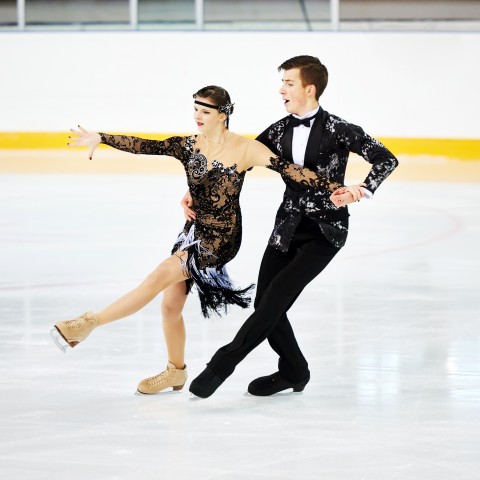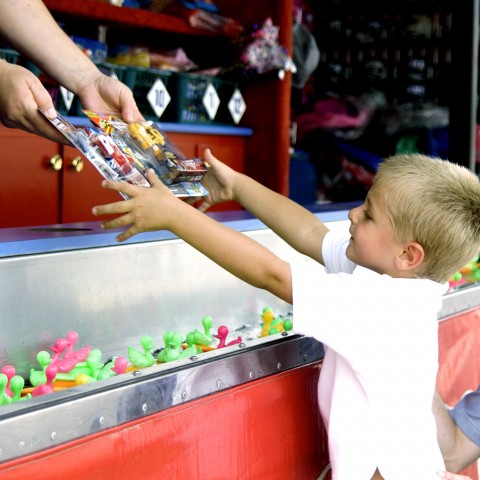
People are never without action! If nothing else, we’re breathing ceaselessly. The bottom line: There’s always something happening around us. And a verb in Hindi is the only part of speech that helps us express those actions in the most meaningful way.
Therefore, it’s quite essential to study the most common verbs in Hindi with examples.
But before moving on to our Hindi verbs list, we thought you’d definitely like to check out our amazing and highly useful Hindi lessons on the Best 100 Adjectives, Top 100 Nouns, and The Most Common Pronouns in Hindi.
 Table of Contents
Table of Contents
- Introduction to Hindi Verbs
- Sentence Pattern in Hindi
- Transitive & Intransitive Verbs
- Regular & Irregular Verbs
- Auxiliary Verbs or Helping Verbs
- Hindi Modal Verbs
- Causative Verbs in Hindi
- Hindi Action Verbs
- Hindi Mental Verbs
- Hindi Phrasal Verbs
- Exploring the World of the Hindi Language with HindiPod101.com
1. Introduction to Hindi Verbs

The first question we’re going to answer is “What is the word for ‘verb’ in Hindi?”
The word for verb in Hindi is known as क्रिया (kriyaa).
- In Hindi, the “to be” verbs end with -ना (-Naa).
For example, “to go” = जाना (jaaNaa); “to eat” = खाना (khaaNaa).
Just like in any other language, there are certain rules to be followed in order to correctly use the following list of verbs in Hindi.
Those who wish to dig into all the grammar essentials, this is your go-to basic Hindi verbs list. So, let’s begin.
2. Sentence Pattern in Hindi

In a Hindi sentence, the verb always comes last. The usual sentence structure is S (Subject) + O (Object) + V (Verb).
| 1. खाना (khaaNaa) “to eat” | सोहन ने आम खाया। SohaN Ne aam khaayaa. “Sohan ate a mango.” |
Here, सोहन (SohaN) = Subject, आम (aam) = Object, and खाया (khaayaa) = Verb.
| 2. पढ़ना (padhaNaa) “to read” | रीमा किताब पढ़ रही है। riimaa kiTaab padh rahii hai. “Reema is reading a book.” |
Here, रीमा (riimaa) = Subject, किताब (kiTaab) = Object, and पढ़ रही है (padh rahii hai) = Verb.
Now that we’ve looked at the ways verbs work in Hindi, it’s time to study the different types of verbs in Hindi.
3. Transitive & Intransitive Verbs
On the basis of presence / absence of the object, there are two Hindi verb types.
- One is a “transitive verb” in Hindi, or सकर्मक क्रिया (Sakarmak kriyaa). Using Hindi transitive verbs means that the sentence has an object.
| 3. जाना (jaaNaa) “to go” | मैं स्कूल जाता हूँ। main SkuuL jaaTaa huun. “I go to school.” |
- The other type is the “intransitive verb” in Hindi, or अकर्मक क्रिया (akarmak kriyaa). Using an intransitive verb means that the sentence has no object.
Example: मैं जाता हूँ। (main jaaTaa huun.) = “I go.”

4. Regular & Irregular Verbs
This is not a strict division, but in terms of Hindi verb conjugation, there are two types of Hindi verbs.
- Regular verbs in Hindi
When conjugating Hindi regular verbs, the verb form remains the same.
Example: Here, the infinitive verb is “to watch,” or देखना (DekhaNaa).
| 4. देखना (DekhaNaa) “to watch” | राज फ़िल्म देखता है। raaj fiLm DekhaTaa hai. “Raj watches a movie.” |
Now, as the example shows a singular subject, “Raj,” and the present tense verb form, the infinitive form “to watch” changes into present tense and becomes “watches.”
Similarly: राज ने फ़िल्म देखी। (raaj Ne fiLm Dekhii.) “Raj watched a movie.”
राज फ़िल्म देखेगा। (raaj fiLm Dekhegaa.) “Raj will watch a movie.”
- Irregular verbs in Hindi
Hindi irregular verbs may change their forms according to the tense that’s used.
Example: Here, the infinitive verb is “to go,” or जाना (jaaNaa).
राज अस्पताल जाता है। (raaj aSpaTaaL jaaTaa hai.) “Raj goes to the hospital.”
राज अस्पताल गया। (raaj aSpaTaaL gayaa.) “Raj went to the hospital.”
राज अस्पताल जायेगा। (raaj aSpaTaaL jaayegaa.) “Raj will go to the hospital.”
- In addition to these two types of verbs, Hindi verbs conjugation also changes with various other factors, such as gender, mood, intention, etc. Wish to read about this in detail? Stay tuned for our upcoming guide on Conjugation in Hindi!
5. Auxiliary Verbs or Helping Verbs

Do you know that Hindi auxiliary verbs, or helping verbs, are known as सहायक क्रिया (Sahaayak kriyaa). The helping verbs support the main verb and make the sentence grammatically correct.
In our simple Hindi verb tenses charts below, you’ll find some Hindi helping verbs with examples of how to use them.
1- Present Tense
| 5. है (hai) “is” | Used for singular nouns and pronouns | आम मीठा है। aam miithaa hai. “The mango is sweet.” |
| 6. हूँ (huun) “am” | Used for “I” | मैं एक लड़की हूँ। main ek Ladakii huun. “I am a girl.” |
| 7. हैं (hain) “are” | Used for plural nouns and pronouns | वे लोग भूखे हैं। ve Log bhuukhe hain. “Those people are hungry.” |
2- Past Tense
Here are the main Hindi past tense auxiliary verbs.
| 8. था (THaa) “was” | Used for singular masculine nouns and pronouns | सूरज कल दफ़्तर जा रहा था। Suuraj kaL DafTar jaa rahaa THaa. “Suraj was going to the office yesterday.” |
| 9. थी (THii) “was” | Used for singular feminine nouns and pronouns | पूजा सो रही थी। puujaa So rahii THii. “Pooja was sleeping.” |
| 10. थे (THe) “were” | Used for plural nouns and pronouns | सभी बच्चे पार्क में खेल रहे थे। Sabhii bacce paark men kheL rahe THe. “All the kids were playing in the park.” |
3- Future Tense
And lastly, here’s how to conjugate Hindi verbs in the future tense.
| 11. -गा (-gaa) “will” / “shall” | Used for singular masculine nouns and pronouns | सूरज कल दफ़्तर जाएगा। Suuraj kaL DafTar jaayegaa. “Suraj will go to the office tomorrow.” |
| 12. -गी (-gii) “will” / “shall” | Used for singular feminine nouns and pronouns | पूजा दो घंटे तक सोएगी। puujaa Do ghante Tak Soyegii. “Pooja will sleep for two hours.” |
| 13. -गे (-ge) “will” / “shall” | Used for plural nouns and pronouns | सभी बच्चे पार्क में खेलेंगे। Sabhii bacce paark men kheLenge. “All the kids will play in the park.” |
Getting familiar with the different kinds of verbs? Well, there’s a lot more to come! Soon, we’ll be expanding your Hindi verbs vocabulary by checking out our list of Hindi phrasal verbs. We’ll also find out what on earth Hindi causative verbs are!
But first, we present you with some of the most commonly used modal verbs in Hindi.
6. Hindi Modal Verbs
Modal verbs help us express the capacity, intention, or urgency of an action. Just like Hindi auxiliary verbs, modal verbs are not the main verbs, but are helpful in emphasizing a particular context.
| 14. चाहिए (caahiye) “Should” | तुम्हें अब आराम करना चाहिए। Tumhen ab aaraam karaNaa caahiye. “You should rest now.” |
| 15. ज़रूर (zaruur) “Must” | हमें अपना वादा ज़रूर पूरा करना चाहिए। hamen apaNaa vaaDaa zaruur puuraa karaNaa caahiye. “We must fulfill our promise.” |
| 16. सकना (SakaNaa) “Can” / “Could” | ऋतु कार चला सकती है। riTu kaar caLaa SakaTii hai. “Ritu can drive the car.” |
We also use the verb “would” in Hindi. But instead of translating it into a particular word, “would” generally works as a suffix in Hindi verbs.
- Suffixes for “would” = गा (gaa) / गी (gii) / गें (ge)
For example:
- क्या आप चाय लेंगे?
kyaa aap caay Lenge?
“Would you have some tea?”
- हम आपके आभारी रहेंगे.
ham aapke aabhaarii rahenge.
“We would really appreciate that.”
7. Causative Verbs in Hindi
Our list of basic Hindi verbs for beginners would be incomplete without causative verbs. Any idea what they are?
Well, the causative verbs in Hindi represent an action which isn’t being done directly by the subject.
Usually, such verbs end with the suffix -वाना (-vaaNaa).
Let’s read some examples to understand how they are applied in a sentence.
| 17. -वाना (-vaaNaa) “Get” | मुझे बाल कटवाना है। mujhe baaL katavaaNaa hai. “I have to get a haircut.” |
| 18. -वाना (-vaaNaa) “Make” | दादाजी मुझसे रोज़ पौधों में पानी डलवाते हैं। DaaDaajii mujh Se roz pauDHon men paaNii daLavaaTe hain. “Grandpa makes me water the plants every day.” |
8. Hindi Action Verbs
Now we present to you the most popular and common type of verb in Hindi: the action verb.
Action verbs are the main verbs which revolve around the subject. In this Hindi verbs list, we’ve tried to cover as many action verbs for you as possible.
| 19. लाना (LaaNaa) “to bring” | क्या तुम वो सब्ज़ी की टोकरी यहां ला सकते हो? kyaa Tum vo Sabzii kii tokarii yahaan Laa SakaTe ho? “Can you bring that vegetable basket over here?” |
| 20. पकाना (pakaaNaa) “to cook” | विनीता को खाना पकाना बहुत पसंद है। viNiTaa ko khaaNaa pakaaNaa bahuT paSanD hai. “Vinita loves to cook.” |

| 21. बनाना (baNaaNaa) “to make” | सुनील काफ़ी सुंदर तस्वीरें बनाता है। SuNiiL kaafii SuNDar TaSviiren baNaaTaa hai. “Sunil makes amazing pictures.” |
| 22. देखना (DekhaNaa) “to look” | रोहन घाटी की ओर देख रहा था। rohaN ghaatii kii or Dekh rahaa THaa. “Rohan was looking at the valley.” |
| 23. कहना (kahaNaa) “to say” | बच्चा अपनी माँ से कुछ कह रहा है। baccaa apaNii maan Se kuch kah rahaa hai. “The child is saying something to his mom.” |
| 24. बताना (baTaaNaa) “to tell” | रीमा ने मुझे कुछ नहीं बताया। riimaa Ne mujhe kuch Nahiin baTaayaa. “Reema did not tell me anything.” |
| 25. पूछना (puuchaNaa) “to ask” | मुझे तुमसे कुछ पूछना है। mujhe TumaSe kuch puuchaNaa hai. “I need to ask you something.” |
| 26. रुकना (rukaNaa) “to stop” | हमें अगले मोड़ पर रुकना है। hamen agaLe mod par rukaNaa hai. “We have to stop at the next turn.” |
| 27. खड़ा होना (khaadaa hoNaa) “to stand” | खिलाड़ी मैदान में खड़े हैं। khiLaadii maiDaaN men khade hain. “The players are standing on the ground.” |
| 28. चखना (cakhaNaa) “to taste” | मैंने वो चॉकलेट आइसक्रीम चखी थी। main Ne vo caukaLet aaiS kriim cakhii THii. “I had tasted that chocolate ice cream.” |
| 29. लगना (LagaNaa) “to feel” | इस घर में वापस आकर कितना अच्छा लग रहा है। iS ghar men vaapaS aakar kiTaNaa acchaa Lag rahaa hai. “It feels so nice to be here again in this house.” |
| 30. कोशिश करना (kosis karaNaa) “to try” | सोहन ने कई बार कोशिश करके देख लिया। SohaN Ne kaii baar kosis karake Dekh Liyaa. “Sohan tried it so many times.” |
| 31. दौड़ना (DaudaNaa) “to run” | घोड़े बहुत तेज़ दौड़ते हैं। ghode bahuT Tez DaudaTe hain. “The horses run very fast.” |
| 32. घूमना (ghuumaNaa) “to wander” / “to go out” | चलो थोड़ी देर बाहर घूमते हैं। caLo THodii Der baahar ghuumaTe hain. “Let’s go out for a while.” |
| 33. रोना (roNaa) “to cry” | सुमित कल रो रहा था। SumiT kaL ro rahaa THaa. “Sumit was crying yesterday.” |
| 34. हंसना (hanSaNaa) “to laugh” | चुटकुले पर सभी हंसने लगे। cutakuLe par Sabhii hanSaNe Lage. “Everybody laughed at the joke.” |
| 35. मुस्कुराना (muSkuraaNaa) “to smile” | तुम क्यों मुस्कुरा रही थीं? Tum kyon muSkuraa rahii THiin. “Why were you smiling?” |
| 36. छूना (chuuNaa) “to touch” | सुनीता की किताबें मत छुओ। SuNiiTaa kii kiTaaben maT chuo. “Don’t touch Sunita’s books.” |
| 37. सोना (SoNaa) “to sleep” | देव दूसरे कमरे में सोता है। Dev DuuSare kamare men SoTaa hai. “Dev sleeps in the other room.” |
| 38. चिल्लाना (ciLLaaNaa) “to shout” | बच्चे क्यों चिल्ला रहे थे ? bacce kyon ciLLaa rahe THe? “Why were the kids shouting?” |
| 39. लिखना (LikhaNaa) “to write” | मैं कविता और कहानी लिखती हूँ। main kaviTaa aur kahaaNi LikhaTii huun. “I write poems and stories.” |
| 40. समझाना (SamajhaaNaa) “to explain” | ये सवाल समझाना काफ़ी मुश्किल है। ye savaaL SamajhaaNaa kaafii muskiL hai. “It is really hard to explain this sum.” |

| 41. होना (hoNaa) “to become” | हितेश कितना चिड़चिड़ा हो गया है। hiTes kiTaNaa cidacidaa ho gayaa hai. “Hitesh has become so irritable.” |
| 42. लेना (LeNaa) “to take” | दुकानदार ने रोहन से पैसे लिए। DukaaNaDaar Ne rohaN Se paiSe Liye. “The shopkeeper took the money from Rohan.” |
| 43. देना (DeNaa) “to give” | पिताजी को ये छाता दे दो। piTaajii ko ye chaaTaa De Do. “Give this umbrella to Father.” |
| 44. छीनना (chiiNaNaa) “to snatch” | किसी ने उस आदमी का बटुआ छीन लिया। kiSii Ne uS aaDamii kaa batuaa chiiN Liyaa. “Somebody snatched that man’s wallet.” |
| 45. ढूँढना (dhuundhaNaa) “to find” | क्या तुमने कार की चाभी ढूंढ ली? kyaa TumaNe kaar kii caabhii dhuundh Lii? “Did you find the car keys?” |
| 46. इस्तेमाल करना (iSTemaaL karaNaa) “to use” | मेरे चाचा माइक्रोवेव ओवन का इस्तेमाल नहीं करते हैं। mere caacaa maaikrovev ovaN kaa iSTemaaL Nahiin karaTe hain. “My uncle doesn’t use the microwave oven.” |
| 47. पहुँचना (pahuncaNaa) “to arrive” | हम अभी-अभी रेलवे स्टेशन पहुँचे हैं। ham abhii-abhii reLave StesaN pahunce hain. “We have just arrived at the railway station.” |
| 48. निकलना (nikaLaNaa) “to leave” | मैं चार बजे दफ़्तर से निकलूंगा। main caar baje DafTar Se NikaLuungaa. “I will leave the office at four.” |
| 49. रखना (rakhaNaa) “to keep” | अपने ज़ेवर संभाल कर रखना। apaNe zevar SambhaaL kar rakhaNaa. “Keep your jewelry safely.” |
| 50. बुलाना (buLaaNaa) “to call” | माँ तुम्हें बुला रही हैं। maan Tumhen buLaa rahii hain. “Mother is calling you.” |
| 51. पीना (piiNaa) “to drink” | बिल्ली ने सारा दूध पी लिया। biLLii Ne Saaraa DuuDH pii Liyaa. “The cat drank all the milk.” |
| 52. खेलना (kheLaNaa) “to play” | ललित रोज़ बैडमिंटन खेलता है। LaLiT roz baidamiNtaN kheLaTaa hai. “Lalit plays badminton everyday.” |
| 53. शुरू करना (suruu karaNaa) “to start” | मैं कल से इस किताब पर काम शुरू कर दूंगा। main kaL Se iS kiTaab par kaam suruu kar Duungaa. “Tomorrow, I will start working on this book.” |
| 54. परोसना (paroSaNaa) “to serve food” | कृपया, मेहमानों को खाना परोस दीजिये। kripayaa mehmaaNon ko khaaNaa paroS Diijiye. “Please, serve the food to the guests.” |
| 55. धुलना (DHuLaNaa) “to wash” | रमन हर महीने अपनी कार धुलता है। ramaN har mahiiNe apaNii kaar DHuLaTaa hai. “Raman washes his car every month.” |
| 56. दबाना (DabaaNaa) “to press” | स्विच को और ज़ोर से दबाओ। Svic ko aur zor Se Dabaao. “Press the switch a little harder.” |

| 57. कूदना (kuuDaNaa) “to jump” | मेरा बेटा सोफ़े पर कूद रहा है। meraa betaa Sofe par kuuD rahaa hai. “My son is jumping on the sofa.” |
| 58. मना करना (maNaa karaNaa) “to refuse” | बॉस ने आज छुट्टी देने से मना कर दिया है। baauS ne aaj chuttii DeNe Se maNaa kar Diyaa hai. “The boss refused to leave today.” |
| 59. मिलना (miLaNaa) “to meet” | सारे दोस्त पांच बजे पार्क में मिलेंगे। Saare DoST paanc baje paark men miLenge. “All the friends will meet in the park at five.” |
| 60. ताली बजाना (TaaLii bajaaNaa) “to clap” | दर्शकों ने जादूगर के लिए ख़ूब ताली बजाई। Darsakon Ne jaaDugar ke Liye khuub TaaLii bajaayii. “The audience clapped for the magician.” |
| 61. छींकना (chiinkaNaa) “to sneeze” | वो पूरा वक़्त छींकता रहता है। vo puuraa vaqT chiinkaTaa rahaTaa hai. “He sneezes all the time.” |
| 62. खाँसना (khaanSaNaa) “to cough” | बच्चा बहुत बुरी तरह से खाँस रहा है। baccaa bahuT burii Tarah Se khaanS rahaa hai. “The child is coughing so badly.” |
| 63. काटना (kaaTaNaa) “to cut” | सीमा ने फलों को छोटे-छोटे टुकड़ों में काट दिया। Siimaa Ne phaLon ko chote-chote tukadon men kaat Diyaa. “Seema cut the fruits into small pieces.” |
| 64. चबाना (cabaaNaa) “to chew” | हर निवाले को अच्छी तरह से चबाओ। har NivaaLe ko acchii Tarah Se cabaao. “Chew every morsel properly.” |
| 65. निगलना (NigaLaNaa) “to swallow” | तुम्हें इस गोली को निगलना है। Tumhen iS goLii ko NigaLaNaa hai. “You have to swallow this pill.” |
| 66. सजाना (SajaaNaa) “to decorate” | दिवाली पर हम अपने घरों को सजाते हैं। DivaaLii par ham apaNe gharon ko SajaaTe hain. “On Diwali, we decorate our houses.” |
| 67. घुसना / अंदर आना (ghuSaNaa) / (anDar aaNaa) “to enter” | आप पीछे के दरवाज़े से घर के अंदर आ सकते हैं। aap piiche ke Daravaaze Se ghar ke anDar aa SakaTe hain. “You can enter the house from the back door.” |
| 68. चुस्की लेना (cuSkii LeNaa) “to sip” | ज़ुकाम ठीक करने के लिए गर्म चाय की चुस्कियाँ लो। zukaam thiik karaNe ke Liye garm caaye kii cuSkiyaan Lo. “To get rid of the cold, sip some hot tea.” |
| 69. तैयार करना (Taiyaar karaNaa) “to prepare” | माँ ने रवि के लिए कमरा तैयार कर दिया है। maan Ne ravi ke Liye kamaraa Taiyaar kar Diyaa hai. “Mother has prepared the room for Ravi.” |
| 70. छिपाना / छुपाना (chipaaNaa) / (chupaaNaa) “to hide” | लोकेश ज़रूर हमसे कोई बात छुपा रहा है। Lokes zaruur ham Se koii baaT chupaa rahaa hai. “Lokesh is surely hiding something from us.” |
| 71. चुराना (curaaNaa) “to steal” | किसी ने मेरी अंगूठी चुरा ली है। kiSii Ne merii anguuthii curaa Lii hai. “Somebody has stolen my ring.” |
| 72. नाचना (NaacaNaa) “to dance” | पार्टी में सब लोग नाच रहे थे। paartii men Sab Log Naac rahe THe. “Everybody was dancing at the party.” |

| 73. गाना (gaaNaa) “to sing” | मेरी बहन बहुत अच्छा गाती है। merii bahaN bahuT acchaa gaaTii hai. “My sister sings really well.” |
| 74. डाँटना (daantaNaa) “to scold” | अध्यापक ने विद्यार्थियों को डाँटा। aDHyaapak Ne viDyaarTHiyon ko daantaa. “The teacher scolded the students.” |
| 75. फेंकना (phenkaNaa) “to throw” | शीला ने गेंद मेरी तरफ़ फेंक दी। siiLaa Ne geND merii Taraf phenk Dii. “Sheela threw the ball to me.” |
| 76. बैठना (baithaNaa) “to sit” | मेहमान ड्रॉइंग रूम में बैठे हैं। mehmaaN draauing ruum men baithe hain. “The guests are sitting in the drawing room.” |
| 77. बेचना (becaNaa) “to sell” | सब्ज़ीवाला सब्ज़ी बेच रहा है। SabziivaaLaa Sabzii bec rahaa hai. “The greengrocer is selling the vegetables.” |
| 78. ख़रीदना (khariiDaNaa) “to buy” | मुझे अपने पिता के लिए कुछ फल ख़रीदने हैं। mujhe apaNe piTaa ke Liye kuch phaL khariiiDaNe hain. “I have to buy some fruit for my father.” |
| 79. जीतना (jiiTaNaa) “to win” | हमारी टीम टूर्नामेंट जीत गयी। hamaarii tiim tuurNaameNt jiiT gayii. “Our team won the tournament.” |

| 80. हारना (haaraNaa) “to lose” | ऑस्ट्रेलिया क्रिकेट मैच हार गयी। auStreLiyaa kriket maic haar gayii. “Australia lost the cricket match.” |
| 81. उड़ना (udaNaa) “to fly” | पतंग कितनी ऊँची उड़ रही है। paTang kiTaNii uuncii ud rahii hai. “The kite is flying so high!” |
| 82. तैरना (TairaNaa) “to swim” | ज्योति नदी में तैरेगी। jyoTi NaDii men Tairegii. “Jyoti will swim in the river.” |
8. Hindi Mental Verbs
For your convenience, we’ve created a separate list for mental verbs. These useful Hindi verbs are essential for any new Hindi learner to master!
| 83. जानना (jaaNaNaa) “to know” | मैं कल की पिकनिक के बारे में कुछ नहीं जानती हूँ। main kaL kii pikaNik ke baare men kuch Nahiin jaaNaTii huun. “I don’t know anything about tomorrow’s picnic.” |
| 84. सोचना (SocaNaa) “to think” | सीमा दूसरी नौकरी के बारे में सोच रही है। Siimaa DuuSarii Naukarii ke baare men Soc rahii hai. “Seema is thinking about another job.” |

| 85. अहसास होना (caahaNaa) “to realize” | बच्चे को अपनी ग़लती का एहसास हो गया है। bacce ko apaNii gaLaTii kaa ehaSaaS ho gayaa hai. “The child has realized his mistake.” |
| 86. विश्वास करना (visvaaS karaNaa) “to believe” | मैं तुम पर विश्वास करती हूँ। main Tum par visvaaS karaTii huun. “I believe you.” |
| 87. उम्मीद करना (ummiiD karaNaa) “to hope” | हम सब एक बेहतर भविष्य की उम्मीद करते हैं। ham Sab ek behaTar bhavisy kii ummiiD karaTe hain. “We all hope for a better future.” |
| 88. समझना (SamajhaNaa) “to understand” | रोहन मेरी दिक़्क़त समझता है। RohaN merii DikkaT SamajhaTaa hai. “Rohan understands my problem.” |
| 89. पसंद करना (paSanD karaNaa) “to like” | जॉन को मसालेदार खाना पसंद है। jauN ko maSaaLeDaar khaaNaa paSanD hai. “John likes spicy foods.” |
| 90. प्यार करना (pyaar karaNaa) “to love” | मैं अपने बच्चों से बहुत प्यार करता हूँ। main apaNe baccon Se bahuT pyaar karaTaa huun. “I really love my kids.” |
| 91. याद करना (yaaD karaNaa) “to remember” | मुझे अभी तक वो रात याद है। mujhe abhii Tak vo raaT yaaD hai. “I still remember that night.” |
| 92. भूलना (bhuuLaNaa) “to forget” | सुमित कोर्ट की तारीख़ फिर से भूल गया। SumiT kort kii Taariikh phir Se bhuuL gayaa. “Sumit forgot about the court date again.” |
| 93. नफ़रत करना (NafaraT karaNaa) “to hate” | सुमन इस शहर से नफ़रत करती है। SumaN iS sahar Se NafaraT karaTii hai. “Suman just hates this town.” |
| 94. सपने देखना (SapaNe DekhaNaa) “to dream” | कल रात मैं तुम्हें सपने में देख रहा था। kaL raaT main Tumhen SapaNe men Dekh rahaa THaa. “Last night I was dreaming about you.” |
9. Hindi Phrasal Verbs
By now, you’ve learned many useful Hindi verbs. We will now explore another sub-topic: phrasal verbs.
Phrasal verbs are those verbs in which two phrases come together, and they both collectively act as the main verbs in that sentence.

Sound tricky?Well, because this concept can be a little confusing to learners, we’ve included a quick Hindi phrasal verbs list here.
| 95. आना – जाना (aaNaa – jaaNaa) “to visit” | सर्दियों के मौसम में बहुत सी हस्तियाँ इस होटल में आती-जाती रहती हैं। SarDiyon ke mauSam men bahuT Sii haSTiyaan iS hotaL men aaTii-jaaTii rahTii hain. “Many celebrities visit this hotel in the winter season.” |
| 96. पढ़ना – लिखना (padhaNaa – LikhaNaa) “to study” | उज्जवल भविष्य के लिए पढ़ना – लिखना ज़रूरी है। ujjavaL bhavisy ke Liye padhaNaa – LikhaNaa zaruurii hai. “For a bright future, it’s really important to study hard.” |
| 97. माफ़ी माँगना (maafii maangaNaa) “to apologize” | मेरे सहकर्मी ने अपनी ग़लती पर माफ़ी मांग ली। mere Sahakarmii Ne apaNii gaLaTii par maafii maang Lii. “My colleague apologized for his mistake.” |
| 98. खो जाना (kho jaaNaa) “to get lost” | दो विदेशी होटल का रास्ता भूल गए। Do viDesii hotaL kaa raaSTaa bhuuL gaye. “Two foreigners got lost on their way to the hotel.” |
| 99. हार मान लेना (haar maaN LeNaa) “to give up” | कनिका इतनी जल्दी हार नहीं मानेगी। kaNikaa iTaNii jaLDii haar Nahiin maaNegii. “Kanika would not give up so easily.” |
| 100. चुप हो जाना (cup ho jaaNaa) “to become silent” | प्रार्थना के वक़्त हर कोई चुप हो गया। praarTHaNaa ke vaqT har koii cup ho gayaa. “During the prayer, everybody became silent.” |
10. Exploring the World of the Hindi Language with HindiPod101.com
With this, we successfully close another big chapter. In this lesson, you learned all types of verbs. How many types do you remember?
If asked, would you be able to give us a few examples of causative verbs in Hindi? Our comment box is right below, waiting for you to showcase all you’ve got.
We would be delighted to have you on our HindiPod101.com homepage. Join a completely new world of learning and access our top-class learning materials anytime, anywhere in the world.
In case you experience any problems, don’t hesitate to reach out to us on the help center page that offers a solution to any problem.
Happy Hindi learning!










